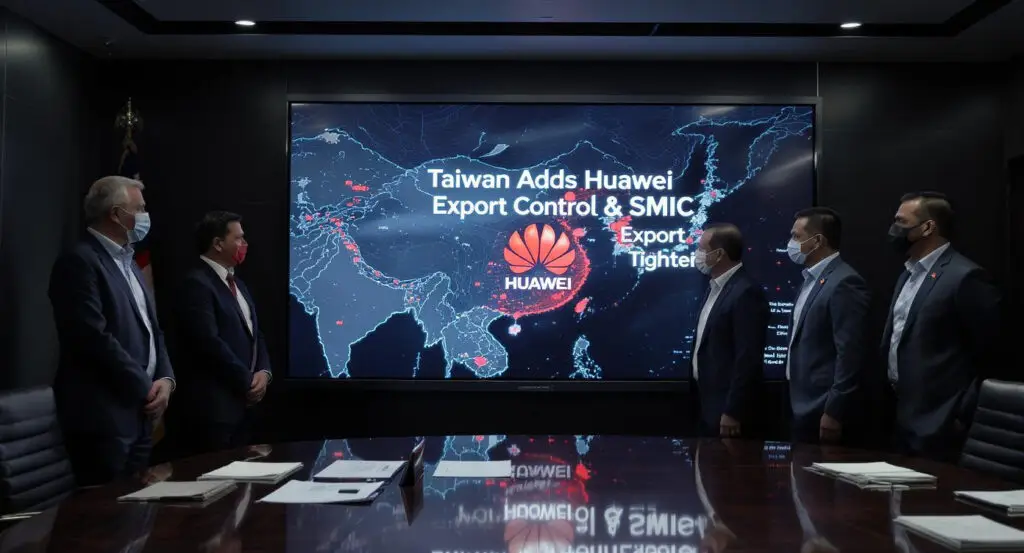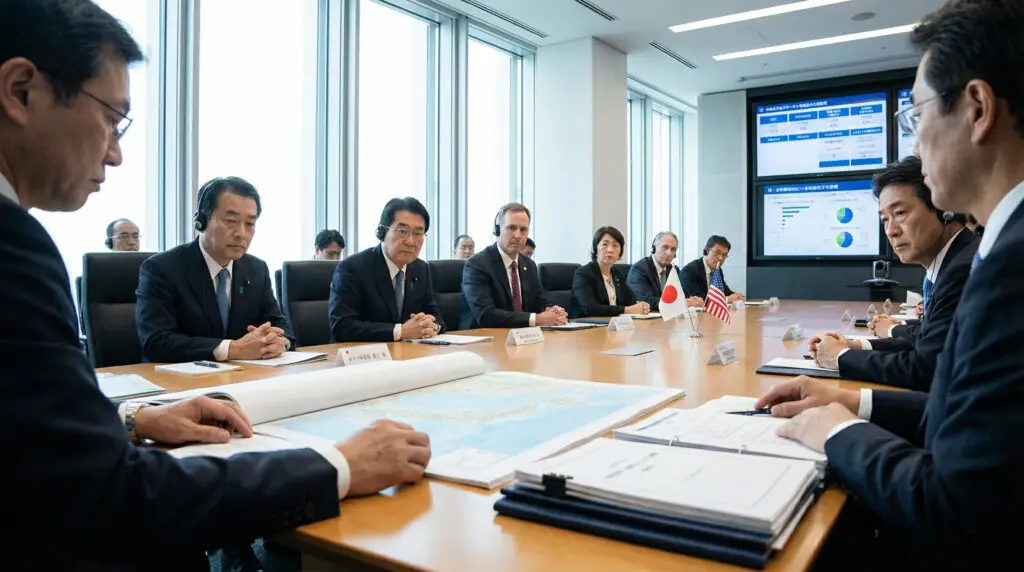TAIPEI, Taiwan— In a move that could further strain already-tense cross-strait and global technology relations, Taiwan’s Ministry of Economic Affairs has officially added Chinese tech titans Huawei Technologies and Semiconductor Manufacturing International Corp. (SMIC) to its strategic export control list. The decision marks a significant escalation in Taiwan’s role in the growing U.S.-China tech rivalry.
Under the updated regulation, Taiwanese firms must now seek government approval before exporting high-tech goods to either Huawei or SMIC. This places the two companies among a list of restricted entities that includes not only other sanctioned Chinese firms but also notorious groups such as the Taliban and al-Qaeda.
The revised “strategic high-tech commodities” list, updated on Sunday, underscores Taiwan’s alignment with international efforts led primarily by the United States to limit China’s access to cutting-edge semiconductor technologies. Both Huawei and SMIC are at the forefront of China’s attempt to build domestic capabilities in advanced chipmaking, particularly artificial intelligence chips, as they seek to compete with global leaders like Nvidia.
Neither Huawei nor SMIC issued a public response immediately following the announcement.
Tech Restrictions Reflect Rising U.S.-China-Taiwan Tensions
The export restrictions come as part of a broader geopolitical and technological standoff that has intensified in recent years. Taiwan, though self-ruled, is viewed by Beijing as a breakaway province to be reunified by force if necessary. While the United States does not maintain formal diplomatic ties with Taiwan, it remains the island’s most prominent security backer and arms supplier.
The inclusion of Huawei and SMIC on Taiwan’s restricted list closely mirrors the United States’ earlier sanctions. Both companies are already blacklisted by the U.S. Commerce Department, primarily over concerns of national security, intellectual property theft, and Beijing’s use of civilian technology for military advancement.
These restrictions have severely limited the ability of Chinese firms to source critical semiconductor components and manufacturing tools. In response, China has doubled down on efforts to achieve technological self-reliance, with Huawei and SMIC developing domestically produced AI chips to circumvent kerbs on U.S. exports.
Taiwan’s Semiconductor Industry in the Global Crosshairs
Taiwan’s central role in the global semiconductor supply chain adds another layer of complexity to the issue. The island is home to Taiwan Semiconductor Manufacturing Co. (TSMC), the world’s largest and most advanced contract chipmaker. TSMC produces chips for major global clients, including U.S.-based Nvidia, Apple, and Qualcomm.
TSMC’s position also places it in the middle of intensifying export controls. In November 2023, the U.S. directed TSMC to cease deliveries of certain high-performance chips to Chinese companies, aligning with Washington’s broader goal to kerb China’s access to military-grade technology.
While Taiwan has historically walked a delicate line in balancing economic engagement with China and security cooperation with the U.S., its latest move signals a harder pivot towards Washington’s tech containment strategy.
A Growing Web of Global Export Barriers
The addition of Huawei and SMIC to Taiwan’s control list is part of a growing international trend. Countries aligned with the U.S. are increasingly implementing export barriers designed to slow China’s technological ambitions. This includes not only restrictions on chip sales but also bans on advanced manufacturing equipment and AI software.
By joining this effort more explicitly, Taiwan appears ready to play a more active role in shaping the next phase of tech geopolitics. Analysts say this decision could reshape trade dynamics in the region and further motivate Beijing to accelerate its investment in domestic semiconductor capabilities.
It remains to be seen how the new rules will impact Taiwan’s chip sector in the long run. While major players like TSMC are largely focused on Western clients, smaller Taiwanese firms with business ties to China may now face stricter scrutiny and reduced revenue streams.
Geopolitics Meets Innovation at the Chip Level
The updated export list is more than a bureaucratic shift; it’s a strategic declaration. In the 21st-century global economy, microchips are not just economic drivers; they are instruments of geopolitical leverage.
As Taiwan continues to assert its sovereignty through technology regulation and deepens cooperation with like-minded nations, its role in the U.S.-China rivalry is becoming increasingly pronounced. For now, the message is clear: when it comes to safeguarding advanced technologies, Taiwan is drawing its own red lines.























